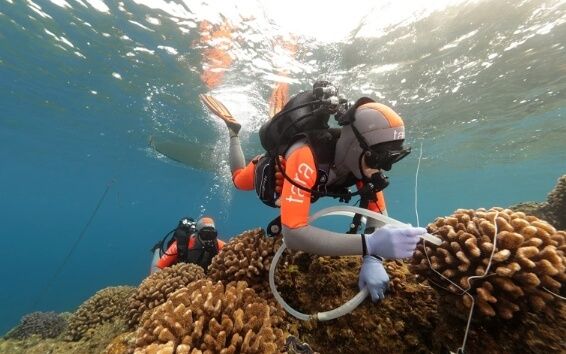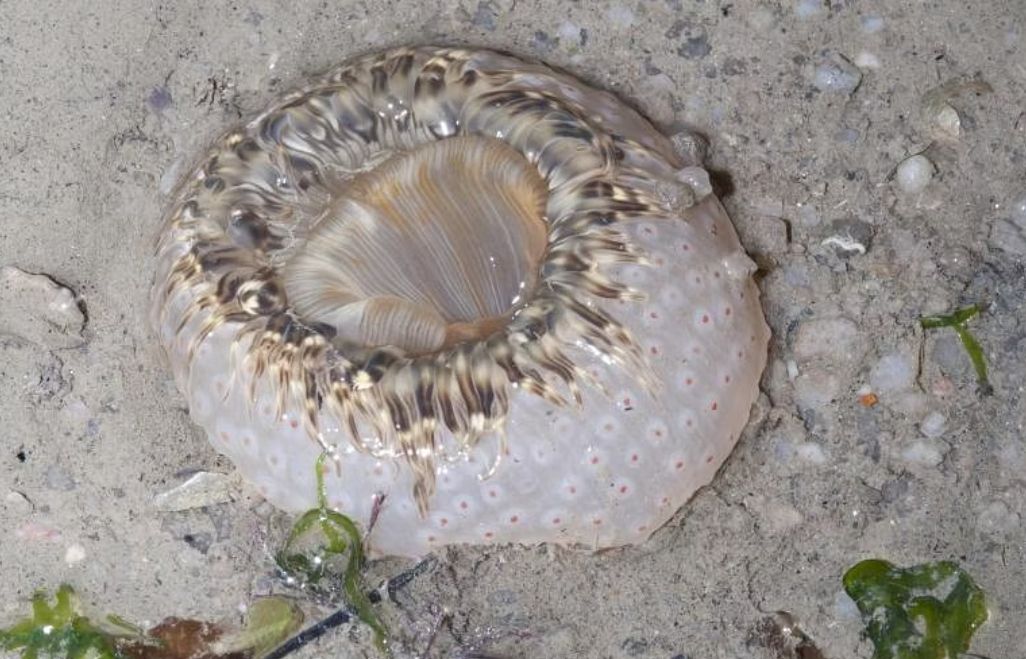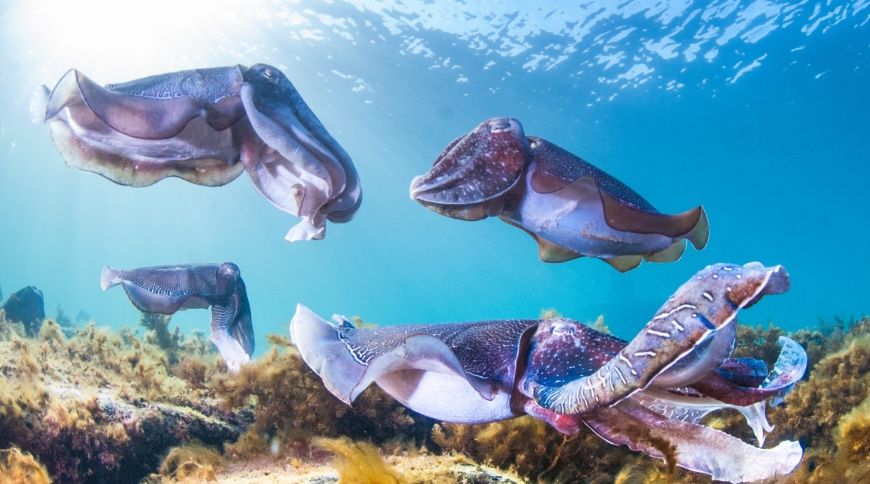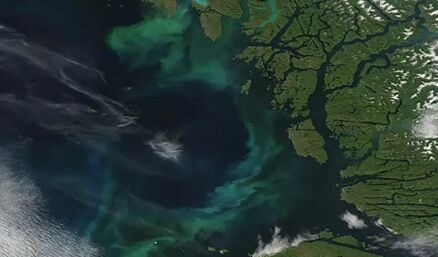
Tag: Tara Pacific expedition
Embark on a thrilling voyage with the Tara Pacific Expedition, a groundbreaking scientific mission that ventures into the mesmerizing waters of the Pacific Ocean. Led by a team of dedicated researchers and ocean enthusiasts, Tara Pacific aims to explore and document the hidden secrets of coral reefs and marine ecosystems across the vast Pacific. This extraordinary expedition spans thousands of kilometers, from the coral triangle in Southeast Asia to the remote archipelagos of the South Pacific.
The primary focus of the Tara Pacific Expedition is to study the coral reefs’ responses to environmental changes, including climate change, ocean acidification, and pollution. With cutting-edge scientific equipment and advanced technologies on board, the team conducts extensive research on coral health, biodiversity, and ecosystem dynamics. By collecting an unprecedented amount of data, Tara Pacific strives to unravel the intricate relationships between coral reefs and their surroundings, shedding light on the critical role these vibrant ecosystems play in maintaining marine biodiversity and supporting countless marine species.
Beyond its scientific endeavors, Tara Pacific fosters collaboration and knowledge sharing among scientists, conservationists, and local communities. Through outreach and educational initiatives, the expedition aims to raise awareness about the significance of coral reefs and the urgent need to protect them. By engaging with policymakers and the public, Tara Pacific advocates for sustainable practices and policies that safeguard our oceans’ most precious treasures.
As Tara Pacific sails on, it leaves a trail of inspiration and hope for the future of our marine environments. The expedition’s discoveries contribute to a deeper understanding of coral reefs’ resilience and vulnerabilities, shaping conservation strategies and policies worldwide. Tara Pacific stands as a beacon of unity, science, and conservation, driving positive change and igniting a passion for protecting our fragile oceans.
-

Exploratory Expedition Reveals Remarkable Microbial Diversity Within Coral Reefs
Category: Marine ResearchRead More: Exploratory Expedition Reveals Remarkable Microbial Diversity Within Coral ReefsUnprecedented Exploration Covers 100,000 Kilometers, Collecting 58,000 Samples from 249 Locations in Indonesia, Japan, and Papua New Guinea Recent findings from the Tara Pacific expedition, the largest-ever survey of Pacific Ocean corals, have challenged previous assumptions about the extent of genetic diversity within coral reefs worldwide. Conducted over a two-year period, the expedition aboard the…
Search
Popular Posts
-

Tiger Anemone Discovered in Singapore Confirmed as New Species after a Decade of Research
Hidden amidst the sands of Changi’s shoreline, a sea anemone bearing a resemblance to a light-colored strawberry has recently been recognized as a novel species by local researchers. Unveiling the Mysteries of the Tiger Anemone Dubbed the “tiger anemone” due to its distinctive striping and its aptitude to consume prey larger than its size, the… READ MORE >>>>
-

Exploration Team Ventures into South Australia to Observe Giant Cuttlefish Mating Season
A Breathtaking Natural Event Witnessed by Researchers Andi Cross & Janine Barker Having lived in Australia for five years and immersed myself in its oceanic environment, it was inevitable that I would hear stories about South Australia. Splitting opinions, half the people I engaged with were captivated by this oceanic realm, while the other half… READ MORE >>>>
-

Study Suggests Climate Breakdown is Altering the Color of World’s Oceans
New research suggests that Earth’s oceans are experiencing a shift in color, and climate breakdown is likely the driving force behind this phenomenon. The once deep blue sea is gradually transforming into a greener hue, particularly in low latitude regions near the equator. The Significance of Ocean Color “The significance of this issue lies not… READ MORE >>>>
Categories
Archives
Tags
Acoustic Telemetry (1) Ancient Marine Arthropods (1) Antarctic Krill (1) Aquaculture (2) Artificial Insemination (1) Australia (6) Bamboo White-Spotted Sharks (1) Beach Culture (1) Bioplastic (1) Bryozoans (1) Channel and Atlantic Coasts (1) Climate Change (5) Climate Change Impact (1) Conservation (6) Coogee Island Challenge (1) Coral Bleaching (1) Coral Reefs (2) Culture (1) Ecological Imbalance (1) Endangered Species (2) Environmental Advocacy (2) Environmental Research (1) Eurypterids (1) Fatal Shark Attack (1) Fisheries (2) Fisheries Management (1) Fishing Moratorium (1) Fish Tagging (1) Food Supplies (1) Fossil (1) Global Warming (3) Global Warming Effects (1) Global Warming Impacts (1) Great Barrier Reef (1) Great White Shark (1) Hibbertopterus lamsdelli (1) Human Food Supply (1) Industrial Fishing (1) International Maritime Organization (1) Invasive Species (2) Island (1) Little Bay Beach (1) Lobster Tracking (1) Macroalgae (1) Malabar Beach (1) Marine Biodiversity (4) Marine Biology (3) Marine Conservation (3) Marine Ecology (9) Marine Ecosystem (3) Marine Ecosystems (3) Marine Environment (1) Marine Life (8) Marine Pollution (1) Marine Renewable Energy (1) Marine Wildlife (2) Microorganisms (1) Microplastics (2) Moon Phase (1) New Mexico (1) Northern Territory (1) Nurdles (1) Ocean Conservation (3) Ocean Health (1) Oceans (1) Paleontologists (1) Pelagic Environment (1) Phytoplankton (2) Plastic Resin (1) Pollution (1) Public Education (1) Public Perception (1) Quarantine (1) Rat (1) Scientific Conference (1) Seabed Mining (1) Sea Life Sydney Aquarium (1) Sea Scorpion (1) Seaweed (1) Shark Attack (2) Shark Attacks (3) Shark Behavior (1) Shark Bite Prevention (1) Shark Breeding (1) Shark Control Programs (1) Shark Cull (1) Shark Culling (1) Shark Nets (4) Shark Safety (1) Shark Shields (1) Southern Ocean (1) Spain (2) Sustainable Practices (1) Swimmer (1) Sydney (1) Threatened Species (1) Threats to Ecosystems (1) Ulva (1) Watersipora Subatra (1) Western Australia (1)
